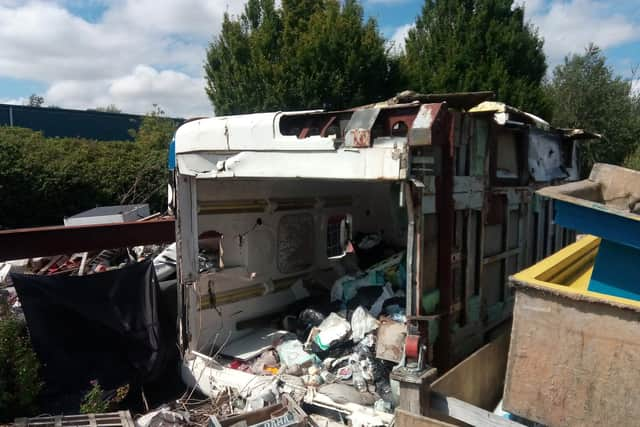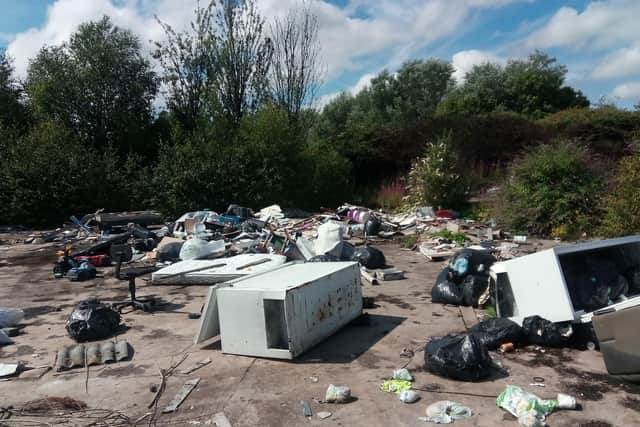Illegal dumping: Councils urged to do more after thousands of complaints lead to just handful of prosecutions
and live on Freeview channel 276
Sineidin Corrins revealed that the Crown Office and Prosecution Service (COPFS) received just 227 reports in relation to fly-tipping across Scotland over the four-year period between March 2017 and March 2021, with just 57 reports relating to littering legislation recorded in the whole of Tayside, Central and Fife since January 1, 2017.
That pales into insignificance compared to the tens of thousands of complaints councils up and down the country receive each year, with Ms Corrins highlighting the particular challenges that exist when it comes to securing convictions.
Advertisement
Hide AdAdvertisement
Hide AdThe shocking figures came to light during Thursday’s meeting of Fife Council’s environment and protective services sub-committee, which has expressed grave concern over illegal dumping across the region and a perceived lack of punishment for those responsible.


Describing the number of reports received by the Crown as “extremely low”, Ms Corrins told councillors that prosecutors had a range of considerations prior to pursuing a prosecution, and that alternatives such as warning letters, fiscal fines and compensation orders were often available.
However, the need for corroboration - both in terms of whether a crime was committed and who committed it - is key, while the fact that many prosecutions are time barred six months after the date of offence has also hampered bringing those responsible to account.
But she added: “There is clearly an issue in terms of the quality of reporting.
Advertisement
Hide AdAdvertisement
Hide Ad

“It’s awareness of the evidential and legal requirements and being able to present that to a significant level in terms of the detail and in terms of the different elements required (for prosecution).
“If we’re only getting these small numbers of reports and we’re unable to go ahead because of insufficient evidence or other factors, then we could improve that in terms of training and feedback, and that would allow the council to report the best quality reports it can do.
“Councils need the tools to be able to gather and investigate and get the information they require, and then they need to know what they need to investigate, what they need to include in reports, what they need to highlight and what they need help with.
“It’s not a case where we’re saying to councils ‘no you don’t have enough, don’t bother reporting it to us’ and therefore we’re masking the problem.
Advertisement
Hide AdAdvertisement
Hide Ad“We very rarely get contacted in advance. The reports just come in - unfortunately they are either very late or we’re not in a position to take them forward, or, if they are, it’s a very small number.
“I have the tools to prosecute, but the number of reports we receive is extremely low.”
Councillor Ross Vettraino OBE, committee convener, thanked Ms Corrins for her “invaluable” input and said he was “staggered” at the low level of reports received.
“I believed that local authorities were not at all well equipped to properly police environmental vandals and the information you have given us today clearly indicated that that’s the case,” he told her.
Advertisement
Hide AdAdvertisement
Hide Ad“Illegal dumping is a multi-faceted problem that’s embedded in our society, and local authorities need to be better at dealing with it."
